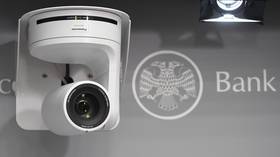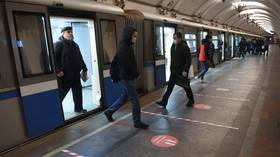Big Brother ain't so bad, after all? Almost half of Muscovites support city's ever-expanding facial recognition system

Moscow's CCTV system, recently used to catch people violating the Covid-19 quarantine, continues to split opinion. A survey has revealed that just under half of the capital's residents support the expansion of facial recognition.
According to research conducted by the Levada Center, 42 percent of Muscovites oppose the installation of facial recognition cameras, with 47 percent supporting it. The Russian capital has an extensive citywide CCTV system, allowing the authorities to track and find criminals wanted by law enforcement. In recent months, the cameras were used to detect and punish citizens for breaking the rules under the city's strict coronavirus self-isolation regime.
The research revealed that those who supported the installation of cameras mainly explained that they help to combat crime (70 percent), with another quarter (27 percent) saying they are necessary for safety. Opponents of the facial recognition system cited "total surveillance" (53 percent) and the violation of citizens' freedoms (39 percent) as their main complaints.
In January, Moscow Mayor Sergey Sobyanin announced that facial recognition would be installed on Moscow's metro system by September. In July, it was reported that the city would spend 1.4 billion rubles ($20 million) equipping 1,500 carriages with eight cameras each.
The results also discovered a correlation between age and opposition to further surveillance, suggesting that those who have grown up with technology are most against the system.
In 2016, the Levada Center polling company was registered as a "foreign agent" within Russia due to it receiving Western funding.
Also on rt.com CCTV captures moment kidnapped man leaps out of trunk of SPEEDING car on Moscow highwayLike this story? Share it with a friend!













